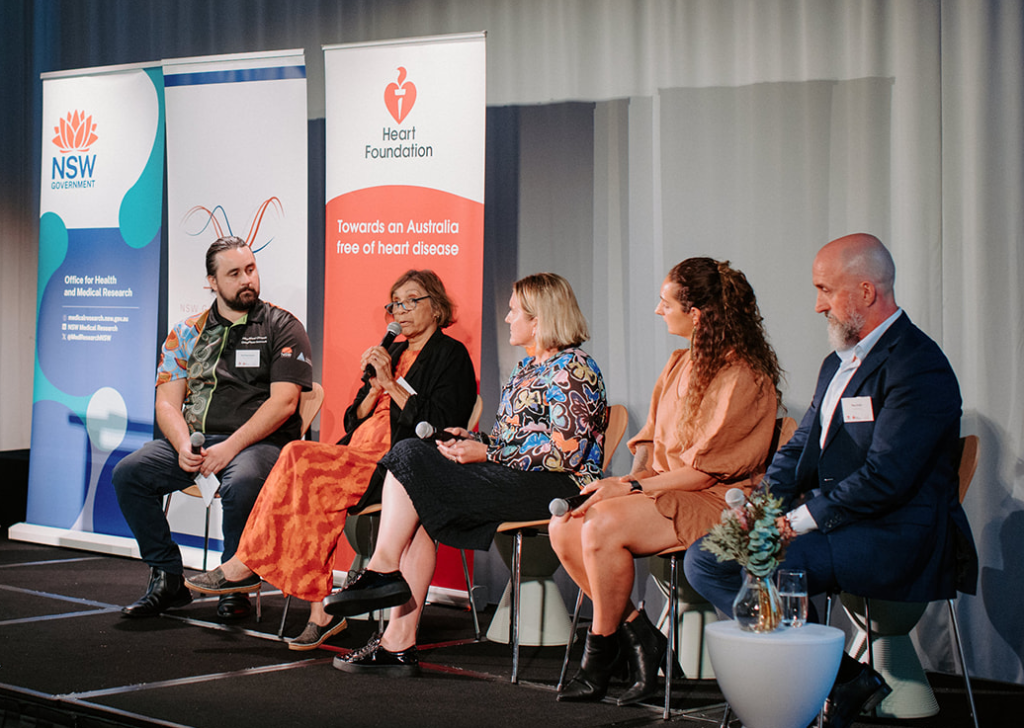Driving Innovation Based on Collaboration and Cultural Safety
Kiel Hennessey, Proud Wiradjuri Man, Manager, Aboriginal Chronic Conditions Network, Aboriginal Health and Wellbeing Stream, Agency For Clinical Innovation (ACI)

“A passion for reciprocal relationships and giving back to community is at the heart of my work which aims to improve the health and wellbeing of our diverse Aboriginal peoples in NSW,” says Kiel Hennessey. A trained Social Worker, his career spans 19 years across government, non-government and university sectors in areas including social services, education and health. Hennessey has a wealth of expertise developing collaborative relationships working in leadership, policy, management and public administration. “I am keen to drive innovation to deliver culturally respectful and appropriate health services and initiatives and scale up those successes,” he says.
In his current role, Hennessey leads the design and implementation of Aboriginal chronic condition health strategies across NSW, as well as specific projects associated with NSW Health priorities. These include state-wide and localised service design and delivery of strategic frameworks, models of care and clinical services. “I do this work in consultation and collaboration with a clinical network made up of Aboriginal leaders across the health system,” Hennessey explains. “Our aim is to drive Aboriginal-led innovation in chronic care in areas such as cardiac, diabetes and renal (kidney) health.” One example of this work is the development of a series of video resources about chronic kidney disease. “This featured the lived experience of an aunty and has been impacting the practice of health staff, such as nephrologists,” says Hennessey. “Another highlight has been a large state-wide community-focused program to improve care for Aboriginal people living with Type 2 diabetes. This project has involved integrated diabetes clinics and education programs at the local level and an Aboriginal workforce with diabetes expertise.”

Hennessey’s work involves co-design, which he believes is very important to helping shift the power balance and ensuring that Aboriginal communities are at the centre of all decision making. “The co-design approach ensures self-determination, informed decision making and handing power back,” he explains. “In order to close the gap in Aboriginal health, we need to ensure the health system is responsive to Aboriginal and Torres Strait Islander communities.
Looking ahead, Hennessey feels positive about the inroads being made in NSW Health that are enabling and supporting Aboriginal leadership at a local level. “Aboriginal health services across the system are being empowered to build more capability for Aboriginal-community controlled services and decisions about allocation of resources and what the community needs, based on culture and connection to community,” he points out.
Cultural safety is at the heart of all of Hennessey’s work at the NSW Agency for Clinical Innovation. “I think human rights are central to healthcare,” Hennessey explains. “Cultural safety supports those rights by acknowledging how care is provided and recognising power inequities in systems and between practitioners and patients.” Hennessey also believes that respectful relationships, shared power and collaboration are pivotal to cultural safety. “It is important to acknowledge the strength and resilience of Aboriginal people,” he says. “To help close the gap we also need approaches that privilege this knowledge and ensure ongoing, culturally safe, responsive systems and appropriate communication that ensures Aboriginal people feel heard and empowered.”
At the CVRN showcase and awards evening, Indigenous health leaders discussed the life-changing impacts and outcomes of their outstanding ‘ in-community’ work. Learn more.
Updated 5 months ago